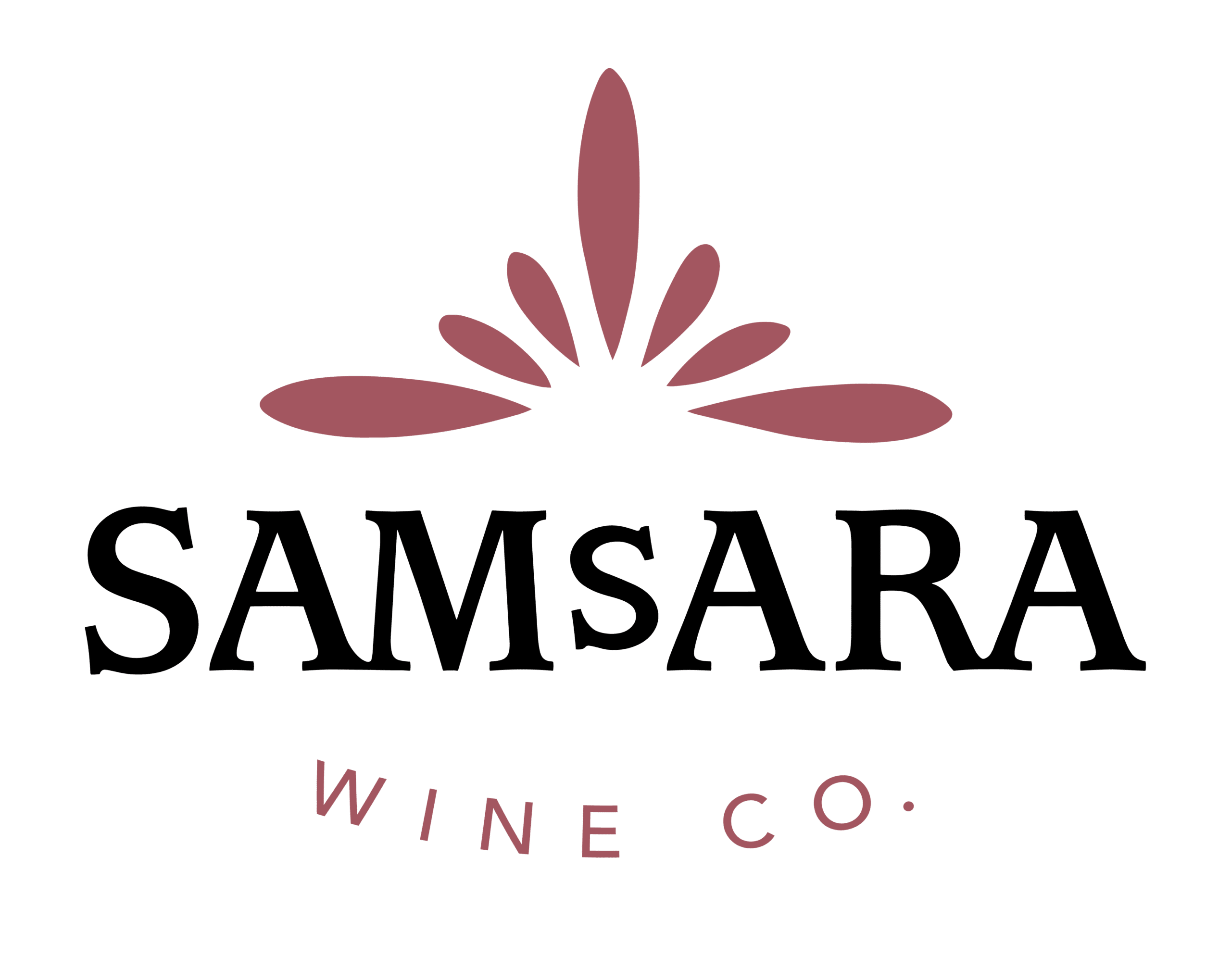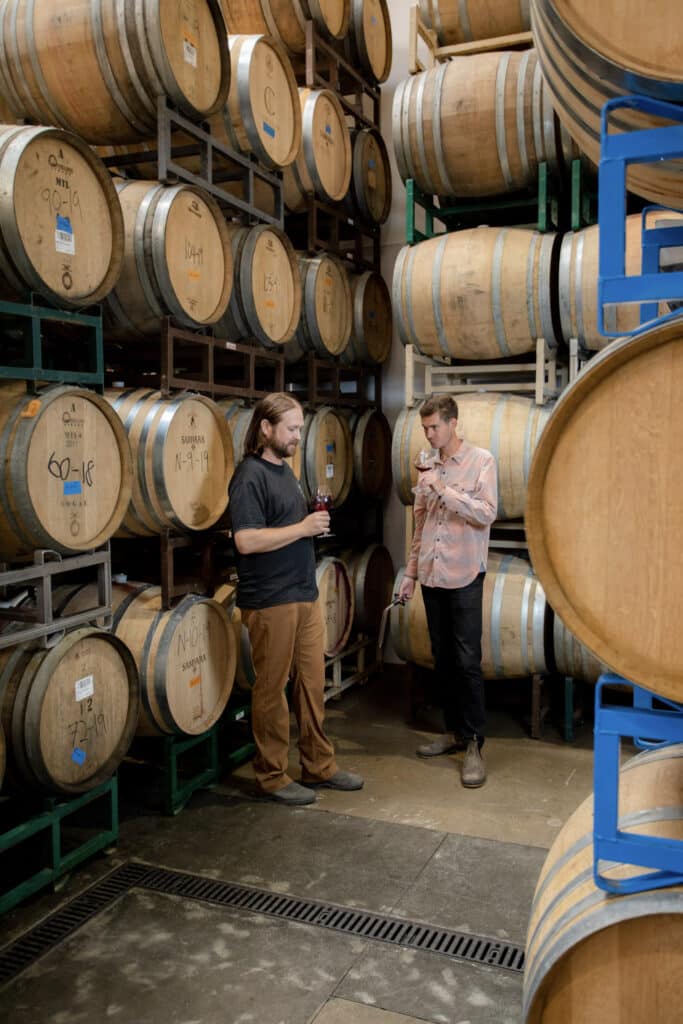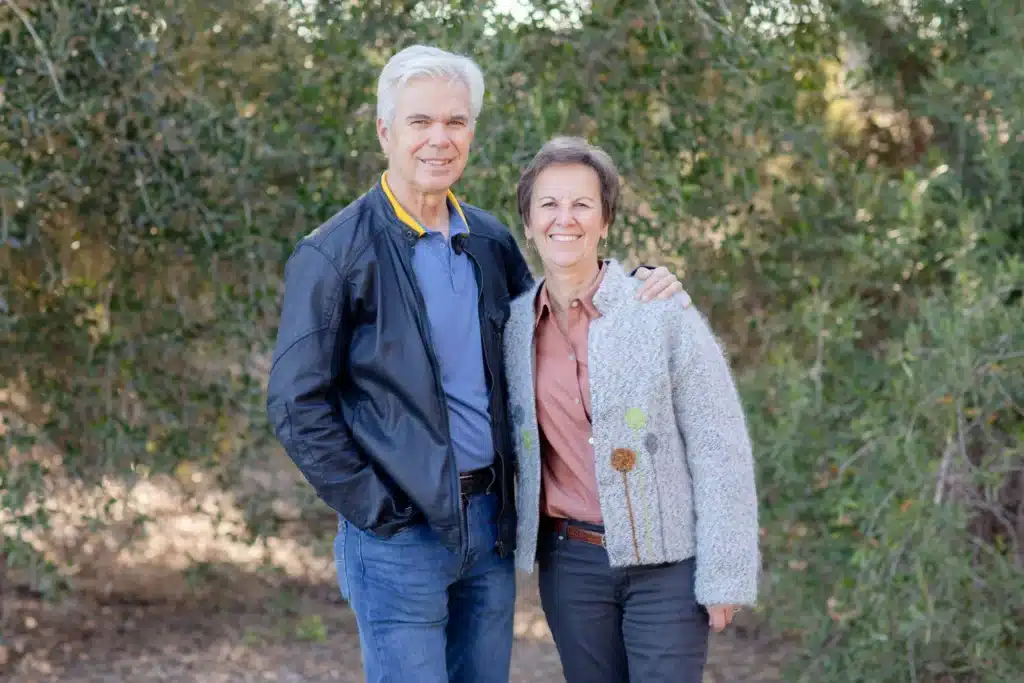No products in the cart.
SIP Certification for Sustainable Winery Operations – Update
For the past two and a half years, SAMsARA has been proud to participate in the Sustainability in Practice (SIP) Certification program, a highly regarded program in the wine industry, emphasizing environmental stewardship, social responsibility, and economic viability. Established to guide and authenticate sustainable wine-growing practices, SIP Certification offers several key features that set it apart as a comprehensive and rigorous sustainability standard.
You know about our commitment to sustainability, but what does our SIP Certification mean?
SIP Certification Standards
1. Environmental Stewardship
SIP Certification places a strong emphasis on protecting natural resources. Key practices include:
- Soil Health: Promotes practices that maintain and improve soil quality, including cover cropping, composting, and minimal tillage.
- Water Management: Encourages efficient water use through drip irrigation, weather-based irrigation scheduling, and maintaining natural waterways.
- Energy Efficiency: Supports the reduction of energy consumption by advocating for renewable energy sources, energy-efficient equipment, and practices that reduce overall energy use.
- Habitat Conservation: Protects and enhances biodiversity by maintaining natural habitats, promoting native species, and creating wildlife corridors.
2. Social Responsibility
SIP Certification underscores the importance of social equity and community well-being:
- Fair Labor Practices: Ensures safe working conditions, fair wages, and access to benefits for all employees. It also involves providing education and training opportunities for workers.
- Community Engagement: Encourages wineries to engage with and contribute to their local communities through various initiatives, including supporting local economies and participating in community development projects.
- Consumer Transparency: Promotes honest and clear communication with consumers about sustainable practices, enhancing trust and brand integrity.
3. Economic Viability
Ensuring that sustainability efforts are economically feasible is a critical aspect of SIP Certification:
- Cost Management: Helps vineyards and wineries identify cost-saving opportunities through efficient resource use and waste reduction.
- Long-term Planning: Encourages strategic planning that balances immediate financial needs with long-term sustainability goals, ensuring ongoing viability and competitiveness.
- Market Differentiation: Provides a competitive edge by appealing to the growing market of environmentally and socially conscious consumers, enhancing brand reputation and marketability.
Certification Process
The SIP Certification process is thorough and transparent, involving several steps:
- Self-Assessment: Wineries and vineyards conduct a self-assessment to understand their current practices and identify areas for improvement.
- Third-Party Audit: An independent auditor conducts an on-site inspection to verify compliance with SIP’s rigorous standards. This ensures the integrity and reliability of the certification.
- Continuous Improvement: Certified entities are required to demonstrate ongoing improvement in their sustainability practices, fostering a culture of continuous development and adaptation to new sustainability challenges.
Benefits of SIP Certification
For Producers:
- Operational Efficiency: Adoption of sustainable practices often leads to more efficient operations and cost savings.
- Market Access: Certification can open up new market opportunities, especially among consumers who prioritize sustainability.
- Brand Reputation: Demonstrating a commitment to sustainability can enhance a brand’s reputation and loyalty among consumers.
For Consumers:
- Trust and Transparency: SIP Certification provides assurance that the wine is produced responsibly, with respect for the environment, workers, and the community.
- Quality Assurance: Sustainable practices often lead to higher quality wines, as healthier vineyards tend to produce better grapes.
Creating a More Sustainable Wine Industry
SIP Certification stands out as a comprehensive and credible standard in the wine industry, addressing the complex interplay between environmental health, social equity, and economic viability. By adhering to SIP standards, we ensure that our practices contribute positively to the environment and society while maintaining their economic health. This holistic approach not only benefits producers and consumers but also helps foster a more sustainable and responsible wine industry.
Parting Thoughts
“Sustainability is our highest priority. Because of our low-intervention winemaking practices, we rely on mother nature for the exquisite quality of fruit, and eventually, wine, that SAMsARA stakes its reputation on. We understand the importance of treating our land, environment and community with respect and care, which is why we strive to continuously improve our practices. Our legacy with the SIP program is a testament to our commitment to sustainability.”
– Lily Hays – Direct to Consumer Business Manager
“We put our money where our mouth is in regards to our winemaking – making the kind of wines we believe in. The same is true for our commitment to sustainability. I’m beyond proud that our values of environmental stewardship are represented through continued winery SIP Certification and working with SIP certified vineyard partners.”
– Matt Brady – Winemaker




